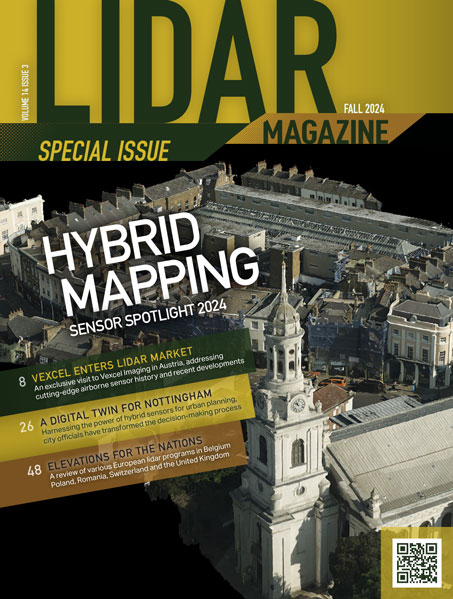Boulder, CO – (June 18, 2018) – Black Swift Technologies (BST), a specialized engineering firm recognized for its purpose-built scientific aerial platforms, announced today it has been awarded a NASA contract to develop an unmanned aircraft system (UAS) to perform upper atmospheric observations of the planet Venus.
BST is proposing a planetary aerial vehicle based on dynamic soaring (Figure 1), a proven method to extract energy from atmospheric shear that has propelled the fastest small-scale aircraft in the world, and provided the energy necessary for long-endurance low-level flights of birds across oceans.
“While there have been a variety of systems proposed for upper atmospheric observations of Venus, the planet’s high wind speeds pose a significant design challenge,” emphasizes Jack Elston, Ph.D., CEO of Black Swift Technologies. “Our solution will be designed to not only survive in the harsh wind environment, but also simultaneously perform targeted sampling of the atmosphere while continuously extracting energy, even on the dark side of the planet.”
Why Venus?
Despite the fact that the surface temperature of Venus is hotter than any other planet in the Solar System at 467°C, the atmospheric pressure and temperature at about 50 km to 65 km above the surface of the planet is nearly the same as that of the Earth, making its upper atmosphere the most Earth-like area in the Solar System, even more so than the surface of Mars. Due to the similarity in pressure and temperature of Earth, the upper atmosphere of Venus has been the focus of exploration for decades.
The atmosphere of Venus is composed primarily of carbon dioxide and nitrogen and is much denser and hotter than that of Earth. The upper layer of Venus’ atmosphere exhibits a phenomenon of super-rotation, where the atmosphere circles the planet in just four Earth days. The resulting winds blow at speeds up to 100 m/s (360 km/h or 220 mph). On the other hand, the wind speed becomes increasingly slower as the elevation from the surface decreases, with the breeze barely reaching the speed of 2.8 m/s (10 km/h) on the surface.[1]
“Black Swift Technologies has provided aerial solutions for wildland fires, volcanic observations, tornadoes, and hurricanes—some of the most extreme phenomena on Earth,” Elston says. “This mission is a natural extension of our focus, only now we are concentrating on the extreme conditions of Venus.”
About Black Swift Technologies
Based in Boulder, CO and founded in 2011, Black Swift Technologies LLC, is recognized for delivering reliable, robust, and highly accurate unmanned aircraft systems (UAS) capable of flying scientific payloads in demanding atmospheric environments (high-altitude, corrosive particulates, and strong turbulence). Its purpose-built scientific aerial platforms are used around the globe for a variety of specialized atmospheric research missions in extreme conditions, including monitoring and assessing wildland fires, volcanoes, tornadoes, and hurricanes.
Precision aerial initiatives leveraging its UAS solutions include: environmental monitoring, precision aerial mapping, infrastructure inspection, engineering and surveying, construction management and monitoring, precision agriculture, volumetric measurement, stockpile management, and risk mitigation.
All Black Swift’s UAS solutions leverage its acclaimed SwiftCore™ Flight Management System (FMS) consisting of the SwiftPilot™ autopilot system, the SwiftTab™ tablet-based user interface, the SwiftStation™ ground station, and application specific sensor integrations. The SwiftCore™ FMS is designed to be modular, robust, and simple to operate allowing users to focus on data products.
In addition to the SwiftCore FMS, Black Swift Technologies has unique capabilities to develop and deploy advanced small unmanned aircraft systems (UAS) due the team’s combined expertise in the design, implementation, and analysis of advanced “smart” control systems, expertise in legal and safe flight operations in the United States airspace, and their practical experience and knowledge from thousands of hours of UAS flight operations in demanding conditions. The SwiftCore FMS enables advanced control systems. These “smart” control systems provide industry leading sensor-based control of the UAS that minimizes operator workload while improving the quality of the observed data by autonomously modifying the flight path based on sensor inputs.
More information on Black Swift Technologies and their suite of sUAS solutions can be found at: bst.aero.
[1]Atmosphere of Venus, https://en.wikipedia.org/wiki/Atmosphere_of_Venus, 18 May 2018.

